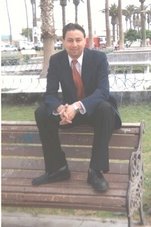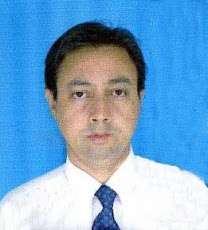Lesson 28: Unit 56 AGAINST THE OODS
David: Today we talked about people who’ve managed to
do something against the odds.
Natalie: People who’ve had difficulties but have still
been successful.
Kevin: People like this man. Mike Haynes who works as
an instructor in wheelchair sports.
David: What sort of people achieve things against the
odds?
Natalie: I think they’re people who refuse to let
their problems control their lives.
Kevin: That’s right. They decide to face their
difficulties or disabilities. Their disabilities don’t prevent them from doing
what they want to do.
David: To me they’re people who try to do something
they can be proud of. And they keep trying to do it, in spite of their
problems.
They try to do something.
|
They keep trying to do it.
|
Natalie: Is there something that you’ve done that you
are very proud?
1. Actually
two things one is completing college the second would be becoming a certified
interpreter for the deaf, because I taught myself sign language.
2. I’ve
raised three wonderful children.
3. I’m
very proud of still being in football after 15 years.
4. I
was in school play last year and I’m proud of that.
5. I’m
written a book with a colleague and I’m quite proud of it. It’s quite nice to
see it in people’s houses. I said gosh! I rate that.
An instructor at a rehabilitation centre.
St. David is a rehabilitation
centre, for people who have had injuries and we’re getting rehabilitated to get
back into everyday life and back to the community. Wheelchair sport is based
under therapeutic recreation. It’s getting people back to what they did before
in life. I run a fitness centre for people with disabilities. It’s specifically
designed for people with disabilities it’s one of three in the country. I’ve
set people up with individualized weight training programs. To increase our
strength and more functionally to get them more independent in life the key to
independence once you’re disabled is string.
I thoroughly enjoy my work; it’s
not even work to me; it’s a lot of fun.
It involves helping people.
|
It involves training people.
|
It involves a lot of encouragement.
|
I thoroughly enjoy my work.
|
It´s a lot of fun.
|
I play wheelchair tennis. I’m a
nationally-ranked wheelchair tennis player. I travel all round the nation
playing wheelchair tennis. I play wheelchair basketball. We travel around the
nation playing wheelchair basketball. Wheelchair basketball is just like
college basketball. We use the same rules that they use. We use a standard
basketball court.
Wheelchair sport is designed to
keep the essence of the sport, so that you’re playing the same sport that you
were before. I am a scuba diver. I take a yearly trip to Bonaire in the
Netherlands Antilles to scuba dive. A lot of quadriplegics go scuba diving;
they may not even be able to brush their teeth in the morning but they can
scuba dive. It takes you out of your wheelchair, and it frees you from gravity,
and allows you to roam as an able-bodied person.
When you’re looking at the coral,
you’re sitting there looking at the micro view of things. You can sit there and
look at one patch of coral, and you may be looking at something and not even
see it. If you take an experienced diver down with you, he can go in and pull
things out and show you little nudibranches and little Christmas tree worms and
all sorts of neat things that you don’t even see. It was one of the things that
I’ve done since my injury that I did not do before. It was like a great
accomplishment. I was really scared.
It takes you out of your wheelchair.
|
It frees you from gravity.
|
You may be looking at something and not even see it.
|
David: Mike Hayness is an
extraordinary man, especially when you consider what happened to him. One night
Mike was driving home with some friends and got into an argument with another
driver at some traffic lights. Mike drove off but the man followed him.
Eventually, Mike got out of his car to see what the man wanted. This is what
happened next.
Mike: I walked towards him, held
up my hands and said: “Hey, what’s the matter?? He pulled out a 357 and, as I
turned to run – thinking the whole time that he was not going to shoot me – he
did shoot me. While I was on the ground, he shot at me again. I lifted up (I
was instantly paralysed). I lifted up and the next bullet went underneath me. I
dragged myself behind a car. And then he laughed and drove off. He’s serving 20
years for attempted murder in Huntsville, which is a penitentiary here in
Texas.
The next year I spent… Well, I
spent 11 months and two weeks in the hospital. I went through numerous
operations, 14 in all. And then, about a year and a half later, I went through
a deep depression where I thought of myself as half a man and half a freak. You
know, I didn’t think I was a human being. You know, I didn’t think I was a
human being. You lose a part of yourself, and you remember how you were before,
and you were before, and you just don’t feel the same.
There’s a lot of things that you
miss. But then I didn’t know all the opportunities that were open to me at the
time. And I basically had to re-invent the wheel. There were other people doing
the same thing I was doing out there, but they were in different parts of the
country. I had to learn everything by myself. I had to learn how to drive.
All the resources and things that
were available… there was nothing standard; there was no information available:
so I had to go out there and find all this information. So now I want to be
there for somebody. I want to be a resource for these people so, once they get
hurt, they don’t have to go through what I did: they don’t have to go through
six or seven years of not knowing all this different information.
I want to catch them right when
they get here to the rehabilitation centre, to tell them, to show them films of
people doing great things achieving things; so that they can set their sights
early in life once they’re hurt, and not have to go through that deep depression
that I went through. I mean, I’m sure they’re still going to go through a
depression, but I don’t want it to be as bad as mine was.
I had to re-invent the wheel.
|
I want to be a resource…
|
WORD BANK
|
Able-bodied
|
Sano
|
Build up
|
Aumentar
|
|
|
Disability
|
Discapacidad/minusvalía
|
Disabled
|
Discapacitado/minusválido
|
|
|
Operation
|
Operación
|
Paralysed
|
Paralizado
|
|
|
Strength
|
Fuerza
|
Weight-training
|
Entrenamiento con
pesas
|
|
|
Wheelchair
|
Silla de ruedas
|
Bring up
|
Criar/educar
|
|
|
Certified
|
Diplomado/titulado
|
Face
|
Mirar hacia/enfrentarse
|
|
|
In spite of
|
A pesar de
|
Interpreter
|
Intérprete
|
|
|
Involve
|
Requerir/implicar
|
Prevent
|
Impedir
|
|
|
Raise/Bring
up
|
Criar
|
Accomplishment
|
Logro
|
|
|
Attempted
murder
|
Intento de asesinato
|
Bullet
|
Bala
|
|
|
Consider
|
Considerar
|
Depression
|
Depresión
|
|
|
Drag
|
Arrastrarse
|
Esscence
|
Esencia/lo esencial
|
|
|
Extraordinary
|
Extraordinario
|
Freak
|
Monstruo
|
|
|
Gravity
|
Gravedad
|
Micro view
|
Vista microscópica/
Perspectiva microscópica
|
|
|
Nation
|
Nación
|
Neat
|
Genial/
|
|
|
Nudribranch
|
Nudibránquios
|
Patch
|
Trozo/pedazo
|
|
|
Penitentiary
|
Penitenciaría/cárcel
|
Quadriplégics
|
Tetrapléjicos
|
|
|
Ranked
|
Clasificado
|
Roam
|
Vagar
|
|
|
Serving 20
years
|
Cumpliendo 20 años
|
Shoot
|
Disparar
|
|
|
Re-invent the wheel
|
Volver a empezar
|
Resources
|
Recursos
|
|
|
Set their sights
|
Fijar sus objetivos
|
Shot
|
Disparo
|
|
|
odds
|
Posibilidades
|
|||


No hay comentarios:
Publicar un comentario